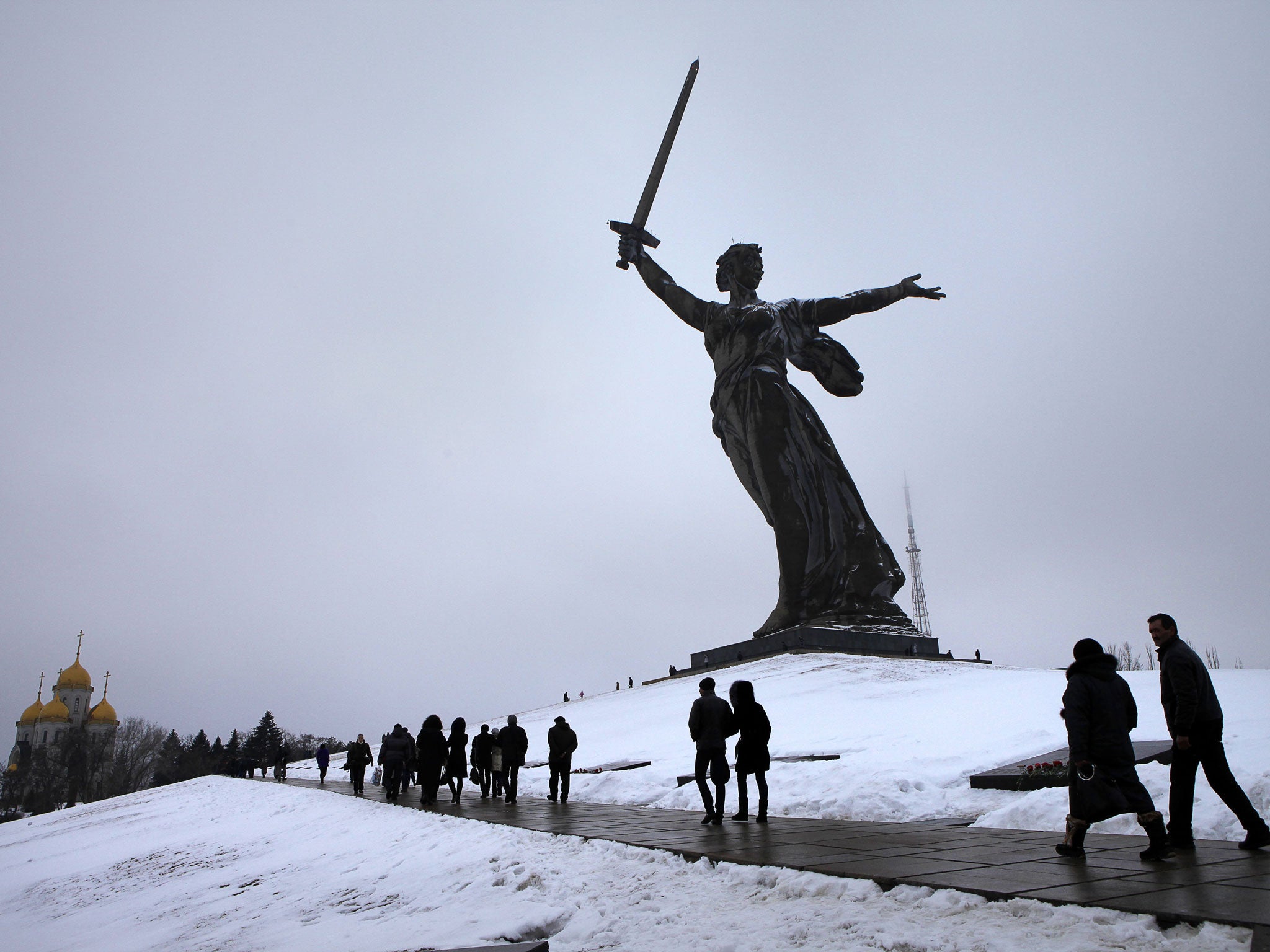
Your support helps us to tell the story
From reproductive rights to climate change to Big Tech, The Independent is on the ground when the story is developing. Whether it's investigating the financials of Elon Musk's pro-Trump PAC or producing our latest documentary, 'The A Word', which shines a light on the American women fighting for reproductive rights, we know how important it is to parse out the facts from the messaging.
At such a critical moment in US history, we need reporters on the ground. Your donation allows us to keep sending journalists to speak to both sides of the story.
The Independent is trusted by Americans across the entire political spectrum. And unlike many other quality news outlets, we choose not to lock Americans out of our reporting and analysis with paywalls. We believe quality journalism should be available to everyone, paid for by those who can afford it.
Your support makes all the difference.The 87-metre high sword-wielding statue of Mother Russia dominates Volgograd's skyline, as Russians yesterday observed the 70th anniversary of the Red Army victory in the Battle of Stalingrad.
The siege, which marked a decisive turn in the war against the Nazis, was one of the bloodiest fights in modern history. Volgograd – known then as Stalingrad – suffered intense fighting for six months from September 1942 as Hitler's Fifth Army encircled the north bank of the Volga and tried to crush Soviet resistance, and so secure the oil fields to the south.
Taking part in the city's commemoration, President Vladimir Putin said: "Stalingrad will forever be a symbol of [the] unity and invincibility of our people, a symbol of genuine patriotism, of the greatest victory of the Soviet liberator soldier. And as long as we are devoted to Russia, our language, culture, roots and national memory, Russia will be invincible."
Georgy Poltavchenko, governor of St Petersburg, said "victory was not achieved thanks to the 'military genius' of Stalin... but thanks to the heroic resistance of our people".
At least 1.2 million are estimated to have died before the German surrender on 2 February 1943. Most of the Germans taken prisoner were never to return to home.
Join our commenting forum
Join thought-provoking conversations, follow other Independent readers and see their replies
Comments